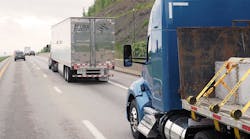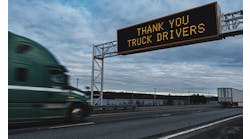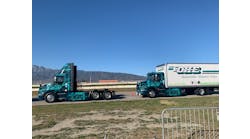Even with the expected publication of the updated hours-of-service proposal this week in the Federal Register, it will still be a while before any changes are finalized.
“It will probably be at least the end of 2020 before we see new rules go into effect,” Brandon Wiseman, a partner with Scopelitis, Garvin, Light, Hanson & Feary, told Fleet Owner.
The formal publication of the HOS proposal kicks off a 45-day widow for public comments, which Wiseman noted could be extended by the Federal Motor Carrier Safety Administration “if there is a compelling reason to do so.”
From there, agency officials must review the comments, decide if any changes to the initial proposal are warranted and determine if a final rule should ultimately be issued.
The next hurdle is selecting the effective date for the new rule. In the proposal, FMCSA specifically asked electric logging device manufactures for feedback on how much time is needed to update software or reprogram devices – six months or one year.
FMCSA said that compliant ELDs do not have to be updated as a result of the proposal. It also stated, however, some manufacturers provide features such as alerts when a driver may be close to an HOS violation.
“Those additional features would need to be updated as a result of the rule, or risk being inaccurate,” FMCSA said, adding that these functions were not included in the estimate that the rule would provide $274 million in savings for the U.S. economy and consumers.
Wiseman also cautioned is it “more likely than not” that legal challenges could arise from the proposal, based on initial statements issued by advocacy and labor groups.
The Truck Safety Coalition, Advocates for Highway and Auto Safety and Teamsters union have already come out against the proposed changes, saying longer work periods will increase fatigue and lead to more health problems for truck drivers.
Speaking out against the split-duty provision, Cathy Chase, president of Advocates, said research shows driving later in the duty period is associated with higher crash risks. The groups also pointed out the National Transportation Safety Board has included reducing fatigue in its Most Wanted List of safety changes since 2016.
In an effort to address concerns documented in the public comments FMCSA could make additional changes as part of the final rule. Even if this happens, legal challenges remains a possibility, Wiseman warned.
There were lawsuits filed the last time there were significant HOS changes in the early 2000s. Likewise, there were similar legal challenges that derailed previous attempts by FMCSA to mandate the use of ELDs, prior to the successful implementation of the rule in December 2017.
Wiseman suggested the mostly positive reaction across trucking, including both American Trucking Associations (ATA) and the Owner-Operator Independent Drivers Associations (OOIDA), is a good sign for those in favor of the changes. The groups are often at odds on issues, including the perceived benefits of the ELD mandate.
OOIDA’s Todd Spencer called the proposed changes “a positive start since truckers don’t have any control over their schedules or traffic conditions.”
In an e-mail as the proposal was being issued, Scopelitis Transportation Consulting said no matter the type or size of a fleet, filing comments with FMCSA is an important step in this overall process.
“If you don’t comment, you shouldn’t complain about the final HOS rule outcome,” Scopelitis wrote.




